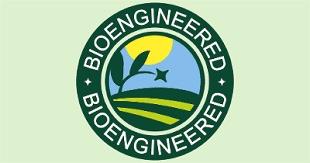 Enacted in July 2016, the National Bioengineered Food Disclosure Law (NBFDL) requires food manufacturers to disclose the presence of bioengineered ingredients on product labels. At the outset, the National Academy of Sciences and the Food and Drug Administration stress that there is no risk or deleterious effect from consuming bioengineered (GMO) foods.
Enacted in July 2016, the National Bioengineered Food Disclosure Law (NBFDL) requires food manufacturers to disclose the presence of bioengineered ingredients on product labels. At the outset, the National Academy of Sciences and the Food and Drug Administration stress that there is no risk or deleterious effect from consuming bioengineered (GMO) foods.
The disclosure on the package may include a reference to a website or telephone number. Derived products including oils and sugar derived from bioengineered plants do not require disclosure since no modified DNA could be carried over into ingredients. Eggs or meat derived from poultry fed bioengineered (GMO) ingredients do not have to disclose the status of feeds used in production. The NBFDL contains a number of exemptions for restaurants and small-scale food producers.
 Exemptions from disclosure incorporated into the regulations framed in terms of the NBFDL were vigorously opposed by activist organizations including the Center for Science in the Public Interest. These organizations lobbied to mandate GM disclosures but the previous Administration justifiably declined to do so. Food manufacturers do not need to identify specific bioengineered ingredients in a food product. Regulations relating to labels were issued by the U.S. Department of Agriculture for foods under their jurisdiction, effective January 1, 2022.
Exemptions from disclosure incorporated into the regulations framed in terms of the NBFDL were vigorously opposed by activist organizations including the Center for Science in the Public Interest. These organizations lobbied to mandate GM disclosures but the previous Administration justifiably declined to do so. Food manufacturers do not need to identify specific bioengineered ingredients in a food product. Regulations relating to labels were issued by the U.S. Department of Agriculture for foods under their jurisdiction, effective January 1, 2022.